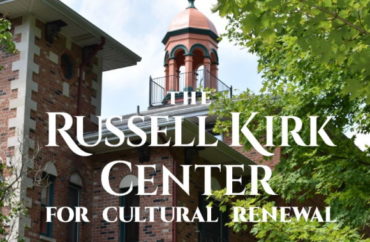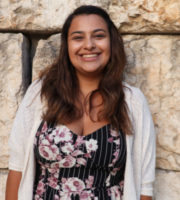
Center imparts lessons from father of American conservatism to next generation
In a technological age that offers near instant gratification, one institution nestled away in central Michigan teaches young people about what the father of conservatism called the “permanent things in society.”
Family, justice, freedom and independence, these are the “permanent things” the Russell Kirk Center for Cultural Renewal focuses on as it works to strengthen conservative thought.
It offers a variety of programs for college students — and also for teachers and scholars — to help them gain a deeper understanding of the cultural conservative movement’s principles.
“We view conservatism as a living tradition, one that needs to be renewed in each age. Our work, then, necessarily touches on the renewal of America’s constitutional and conservative soul,” said Jeffrey Nelson, the center’s executive director, in an email to The College Fix.
The center’s namesake, Russell Kirk, authored over 30 books and wrote hundreds of articles and is considered by many the father of American conservatism.
His 1953 book “The Conservative Mind” is credited with changing the intellectual landscape and direction of the conservative movement toward more stabilized ideas of the American ethos.
The center today addresses the challenges of the rising generation of thought leaders through seminars, research and research opportunities.
Its “Kirk on Campus” initiative is one of the most direct ways that the foundation attempts to engage with undergrads through hosting speakers and scholars at various Michigan-based universities to discuss the legacy of the West.
The hope is that the initiative will bring “viewpoint diversity” to campuses where it is currently lacking. Prior events include “Freedom or Equity: What is the best path forward for America?” and “Is Civil Discourse in a Time of Political Polarization Possible?”
The on-campus events, alongside the “Kirk on Campus” blog, seek to keep students informed on conservative principles and their relevance to the American political landscape today. Center supporters say they believe that the education of the rising generation is essential to the survival of the conservative movement.
The center also promotes its rapidly expanding selection of seminars. Their programs, offered now for more than three decades, host students and lecturers on topics including, “Can Virtue Be Taught,” “Recovering Historical Consciousness” and “T.S. Elliot and the Defense of Culture.”
The classes seek to provide students a traditional liberal education for conservative ends, Nelson said.
“The best way to protect against indoctrination of any kind is obtain a genuinely liberal education, one that also allows for the study of the ideas and institutions that have shaped the American tradition of ordered freedom,” Nelson said.
In addition, he said he encourages young conservatives to build their own library of conservative classics and the best books on Western and American heritage.
For students looking for something more than a seminar, the Russell Kirk Center offers the Wilbur Fellows Program, a research and writing fellowship that allows students to write books, essays, theses, or reviews while at Piety House. The fellowship is intended for aspiring writers and thinkers who wish to set aside time and pursue either their more imaginative or research-based writing projects.
Kirk once said of the program that its “foundation is the nurturing of the moral imagination among those who write and read.”
The fellowship is accompanied by a residential research and study grant and is divided into three parts: junior fellows, graduate fellows, and senior fellows. While junior and graduate fellows work on an independent study alongside their educational advancement, senior fellows are teaching professionals that complete their own work while participating in center events.
The Russell Kirk Center also hosts a variety of programs for members of the community, high school educators, and professionals in the conservative movement. Furthermore, both the Edmund Burke Society and The University Bookman provide resources for both students and scholars to become independently educated on the principles of the conservative movement.
Nelson said the center hopes to continue to expand its offerings in the near future.
“The Russell Kirk Center will be adding more programs aimed at young people trying to understand what it has meant to be an American conservative in past generations, and what it means to be an American conservative today,” he said.
But it remains as relevant as ever, conservative scholar Matthew Continetti recently argued in The Atlantic.
“Kirk’s writing has much to offer this generation of conservatives — and liberals — as they consider what attitudes to adopt toward artificial intelligence, Silicon Valley, social media, free speech, drone wars, globalization, and entitlement spending,” Continetti wrote.
MORE: University Bookman marks six decades of conservative discourse with ‘intelligence and honesty’
Like The College Fix on Facebook / Follow us on Twitter






Please join the conversation about our stories on Facebook, Twitter, Instagram, Reddit, MeWe, Rumble, Gab, Minds and Gettr.